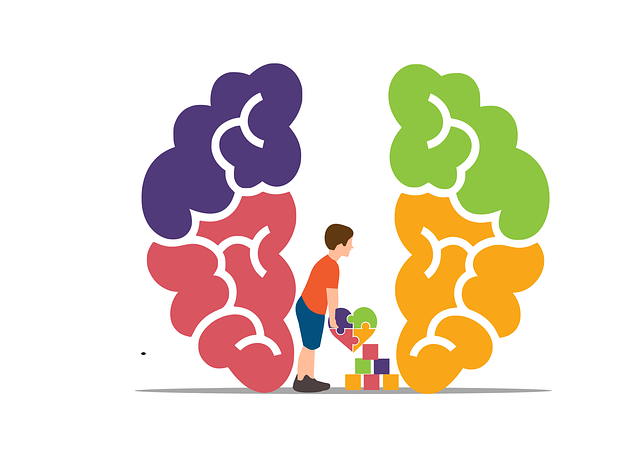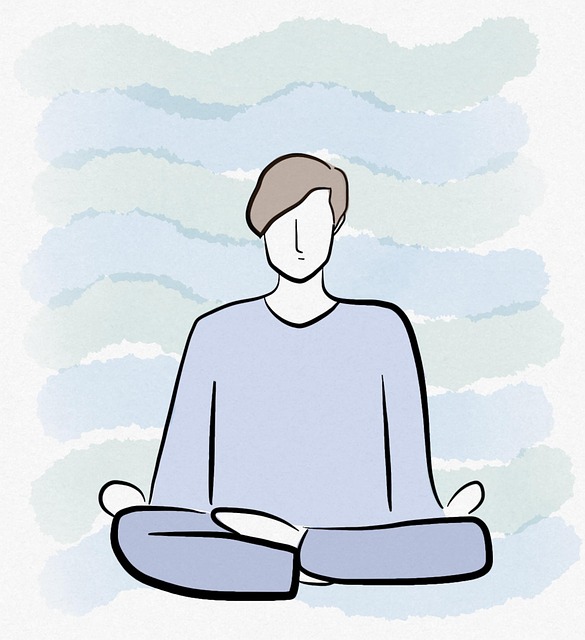In polyamorous and open relationships, self-care is essential for managing unique challenges like complex communication and jealousy. Effective strategies include therapy tailored to these dynamics, stress management, trauma support, and mental health practices. For young adults, prioritizing self-care through therapy enhances well-being, fosters healthy relationship dynamics, and mitigates emotional strain. Key techniques involve setting boundaries, developing self-awareness, and practicing mindfulness for improved communication and conflict resolution within complex relationships.
Self-care is an essential aspect of maintaining healthy relationships, especially within the polyamorous and open communities. This article explores the unique challenges faced by young adults in these relationships and offers practical strategies for improvement. We delve into the significance of understanding self-care, building boundaries, and incorporating therapy as game-changers for personal growth and relationship management. By nurturing yourself through various activities, you can enhance your well-being and navigate the bustling landscape of polyamory with resilience.
- Understanding Self-Care: Why It's Crucial for Polyamorous and Open Relationships
- The Unique Challenges of Self-Care in Young Adult Polyamory
- Building Healthy Boundaries: A Cornerstone of Self-Care
- Incorporating Therapy for Personal Growth and Relationship Management
- Nurturing Yourself: Activities and Strategies for Enhanced Well-being
Understanding Self-Care: Why It's Crucial for Polyamorous and Open Relationships

In the context of polyamorous and open relationships, self-care is more than just a personal choice—it’s a foundational practice for maintaining healthy connections. These types of relationships often come with unique challenges, such as navigating complex communication, managing jealousy, and fostering trust across multiple partners. Therefore, prioritizing self-care becomes essential for individual well-being and relationship satisfaction.
Understanding self-care involves recognizing its role in stress management and trauma support. For young adults navigating polyamorous and open relationships, dedicated practices can help mitigate the potential emotional toll. This may include regular therapy sessions tailored to these specific relationship dynamics, as well as engaging in activities that promote mental and physical health. With the right support from healthcare providers who have undergone cultural competency training, individuals can develop coping mechanisms, enhance their self-esteem, and cultivate a sense of balance within their relationships.
The Unique Challenges of Self-Care in Young Adult Polyamory

Navigating self-care within polyamorous young adult relationships presents unique challenges. The dynamic nature of open relationships can lead to increased emotional complexity and stress, impacting mental health awareness. Unlike monogamous couples, polyamory demands constant communication, transparency, and negotiation about boundaries, which can be taxing, especially for those grappling with past traumas or seeking burnout prevention strategies.
Therapy for young adults in polyamorous relationships offers a safe space to process these complexities. It encourages individuals to explore their needs, communicate effectively within their partnerships, and access trauma support services if required. By prioritizing mental health awareness, therapy fosters healthier relationship dynamics, enhances self-care practices, and promotes overall well-being in the context of polyamory.
Building Healthy Boundaries: A Cornerstone of Self-Care

Setting and maintaining healthy boundaries is a fundamental aspect of self-care, especially for young adults navigating complex relationships. In today’s world, where pressures from social media, work, and personal connections can be overwhelming, establishing clear limits becomes crucial for mental well-being. This concept holds significant relevance for those in polyamorous or open relationships, who often face unique challenges in balancing intimacy and individual needs.
Therapy provides a safe space to explore these dynamics, helping individuals learn to say ‘no’ without guilt and prioritize their emotional well-being. For healthcare providers, too, cultivating strong boundaries is essential, especially when considering burnout prevention strategies. Incorporating practices like setting boundaries at work, prioritizing self-time, and engaging in cultural competency training can foster resilience and a healthier work-life balance, ultimately improving both personal and professional outcomes.
Incorporating Therapy for Personal Growth and Relationship Management

For many young adults navigating complex personal lives, incorporating therapy can be a powerful tool for growth and relationship management, especially within polyamorous and open relationships. These intimate connection styles often require a high level of self-awareness, communication, and conflict resolution skills, which therapy facilitates. By engaging in therapeutic practices, individuals can explore their emotions, understand their needs, and develop effective strategies to manage the unique challenges that arise in these relationships.
Therapy provides a safe space for emotional healing processes to unfold, allowing participants to process their feelings about intimacy, jealousy, trust, and boundaries. Through structured sessions, young adults can learn conflict resolution techniques tailored to polyamorous dynamics, fostering healthier interactions with partners. Moreover, mental health policy analysis and advocacy play a role in ensuring accessible resources for this demographic, promoting the idea that prioritizing self-care is not just beneficial but necessary for overall well-being, especially within diverse relationship structures.
Nurturing Yourself: Activities and Strategies for Enhanced Well-being

Nurturing yourself is an essential aspect of self-care, especially for young adults navigating complex relationships and personal identities. For those in polyamorous or open relationships, finding time to tend to one’s emotional and mental well-being can be a game-changer. Engaging in activities that promote relaxation, such as mindfulness meditation or journaling, allows individuals to process their emotions and foster self-awareness—a crucial element for healthy communication strategies within these relationships.
Building emotional intelligence is another powerful tool for self-care. Recognizing and managing your feelings enables better decision-making and strengthens connections with partners. Positive thinking exercises, like reframing negative thoughts or practicing gratitude, can significantly impact overall happiness and resilience. When combined with open dialogue and a supportive network, these strategies create a nurturing environment, enhancing the quality of relationships and promoting personal growth in young adults exploring therapy for their unique relationship dynamics.
Self-care is not a luxury but an essential practice, especially within polyamorous and open relationships. By understanding and prioritizing self-care, young adults in these communities can navigate unique challenges, foster healthy boundaries, and enhance their overall well-being. Incorporating therapy specifically tailored to young adults in polyamorous relationships allows for personal growth and improved relationship management. Through a combination of self-reflective activities and strategic strategies, individuals can revolutionize their self-care routines, leading to more fulfilling and balanced lives. For those seeking guidance, exploring therapy options designed for young adults in polyamory is a significant step towards nurturing oneself.














